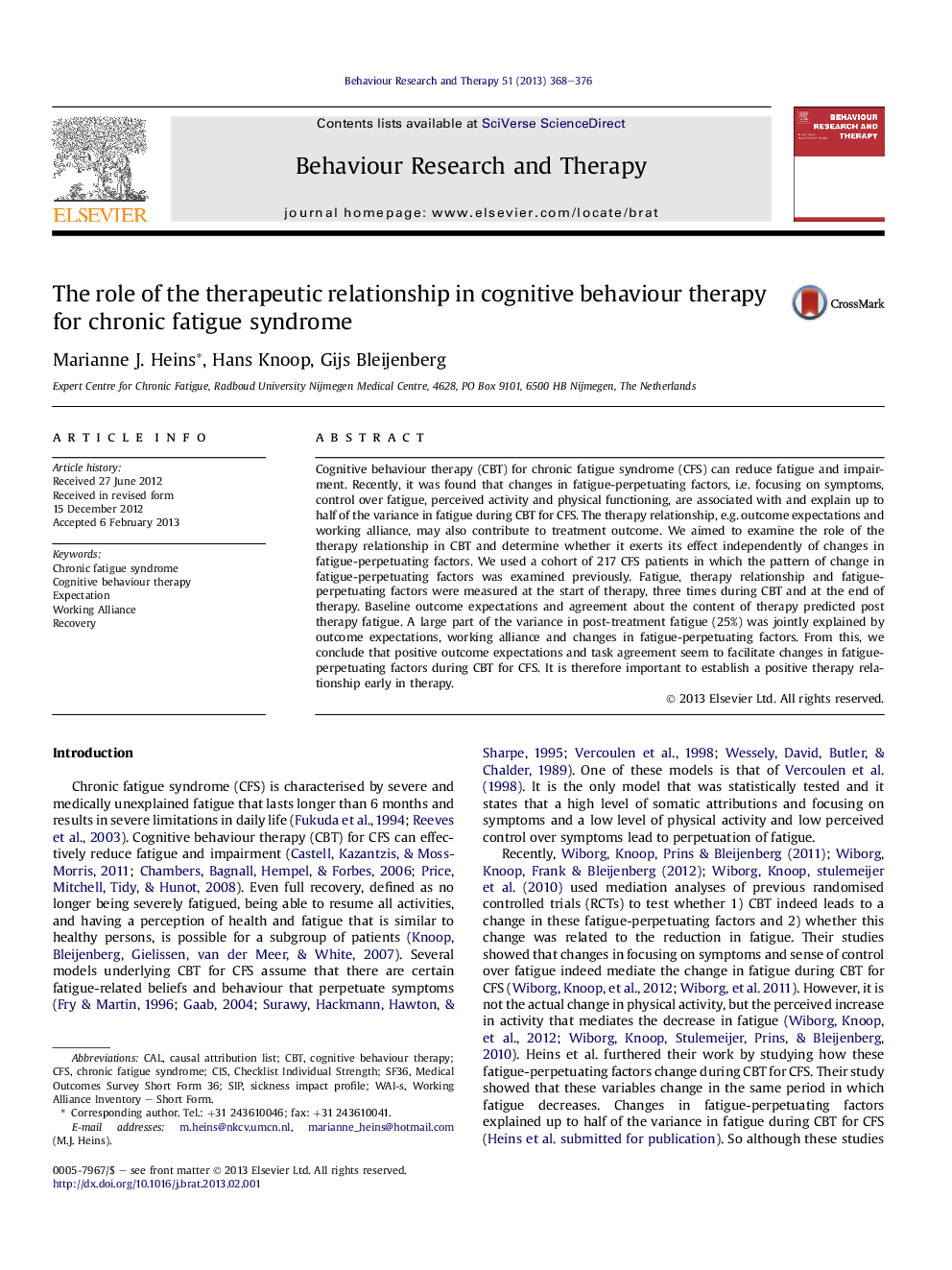| کد مقاله | کد نشریه | سال انتشار | مقاله انگلیسی | نسخه تمام متن |
|---|---|---|---|---|
| 10444449 | 916083 | 2013 | 9 صفحه PDF | دانلود رایگان |
عنوان انگلیسی مقاله ISI
The role of the therapeutic relationship in cognitive behaviour therapy for chronic fatigue syndrome
ترجمه فارسی عنوان
نقش روابط درمانی در درمان رفتار شناختی برای سندرم خستگی مزمن
دانلود مقاله + سفارش ترجمه
دانلود مقاله ISI انگلیسی
رایگان برای ایرانیان
کلمات کلیدی
CFSCISSIPSF36Checklist individual strengthMedical Outcomes Survey Short Form 36Working alliance - اتحاد کارExpectation - انتظارCognitive behaviour therapy - درمان رفتار شناختیCBT - رفتار درمانی شناختی Recovery - ریکاوریChronic fatigue syndrome - سندرم خستگی مزمن، سندروم خستگی مفرطsickness impact profile - مشخصات تاثیر بیماریcal - کال
موضوعات مرتبط
علوم پزشکی و سلامت
پزشکی و دندانپزشکی
روانپزشکی و بهداشت روانی
چکیده انگلیسی
Cognitive behaviour therapy (CBT) for chronic fatigue syndrome (CFS) can reduce fatigue and impairment. Recently, it was found that changes in fatigue-perpetuating factors, i.e. focusing on symptoms, control over fatigue, perceived activity and physical functioning, are associated with and explain up to half of the variance in fatigue during CBT for CFS. The therapy relationship, e.g. outcome expectations and working alliance, may also contribute to treatment outcome. We aimed to examine the role of the therapy relationship in CBT and determine whether it exerts its effect independently of changes in fatigue-perpetuating factors. We used a cohort of 217 CFS patients in which the pattern of change in fatigue-perpetuating factors was examined previously. Fatigue, therapy relationship and fatigue-perpetuating factors were measured at the start of therapy, three times during CBT and at the end of therapy. Baseline outcome expectations and agreement about the content of therapy predicted post therapy fatigue. A large part of the variance in post-treatment fatigue (25%) was jointly explained by outcome expectations, working alliance and changes in fatigue-perpetuating factors. From this, we conclude that positive outcome expectations and task agreement seem to facilitate changes in fatigue-perpetuating factors during CBT for CFS. It is therefore important to establish a positive therapy relationship early in therapy.
ناشر
Database: Elsevier - ScienceDirect (ساینس دایرکت)
Journal: Behaviour Research and Therapy - Volume 51, Issue 7, July 2013, Pages 368-376
Journal: Behaviour Research and Therapy - Volume 51, Issue 7, July 2013, Pages 368-376
نویسندگان
Marianne J. Heins, Hans Knoop, Gijs Bleijenberg,
